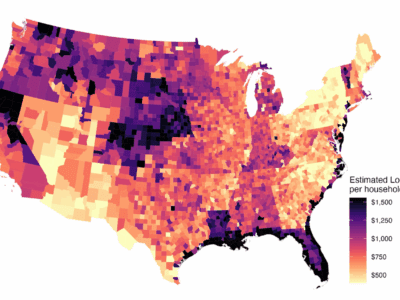Does Proposition 26 Undermine California’s Climate Change Law?
No. Not at all. Legally, we are still all systems go for AB 32, the Global Warming Solutions Act.
First, take a look at the careful analysis that Cara, Sean, and Rhead produced a couple of weeks ago. It notes one extremely important fact about Proposition 26: its retroactive provisions only go back to January 2010, and AB 32 was enacted in 2006. AB 32 explicitly authorizes the California Air Resources Board to impose regulatory fees. Since Proposition 26 only applies to state “statutes,” it does not affect administrative regulations.
Second, any interpretation of Proposition 26’s meaning must look to the touchstone of interpreting California initiatives : the intent of the voters. By passing Proposition 26, could we reasonably read the state’s voters as wanting to undermine AB 32? Absolutely not, because at the same time they passed Proposition 26 with a small though clear (52.8%) majority, they overwhelmingly (61.2%) rejected Proposition 23, which would have suspended AB 32. Thus, any doubts in interpreting Proposition 26 must be resolved in favor of allowing AB 32 to continue. Put another way, Proposition 26 has no effect on the broad grant of authority to the California Air Resources Board to implement, enforce, and fulfill the purposes of AB 32.
Although California law does not contain the same degree of deference to administrative agency construction of statutes as is contained in the famous Chevron doctrine, it nevertheless allows for great deference to agencies with expertise in the area of their regulatory authority, especially when –as is the case with climate change — no fundamental individual rights are at issue.
Thus, if CARB found with substantial evidence that, say, an oil severance fee — which charges oil as it is pumped from the ground — would be an appropriate way of internalizing the external costs of petroleum, then California courts would be obliged to defer to this determination. California is the only oil-producing state that lacks such a severance fee. Other such fossil fuel fees would also be permissible for CARB to impose, for the purposes of fulfilling AB 32’s mandate.
This means that the most powerful fiscal body in California state government is now the California Air Resources Board. That might seem a little odd, given that the Legislature theoretically has that job, but we’re way past theory when it comes to California government.
Reader Comments
4 Replies to “Does Proposition 26 Undermine California’s Climate Change Law?”
Comments are closed.







Whew.